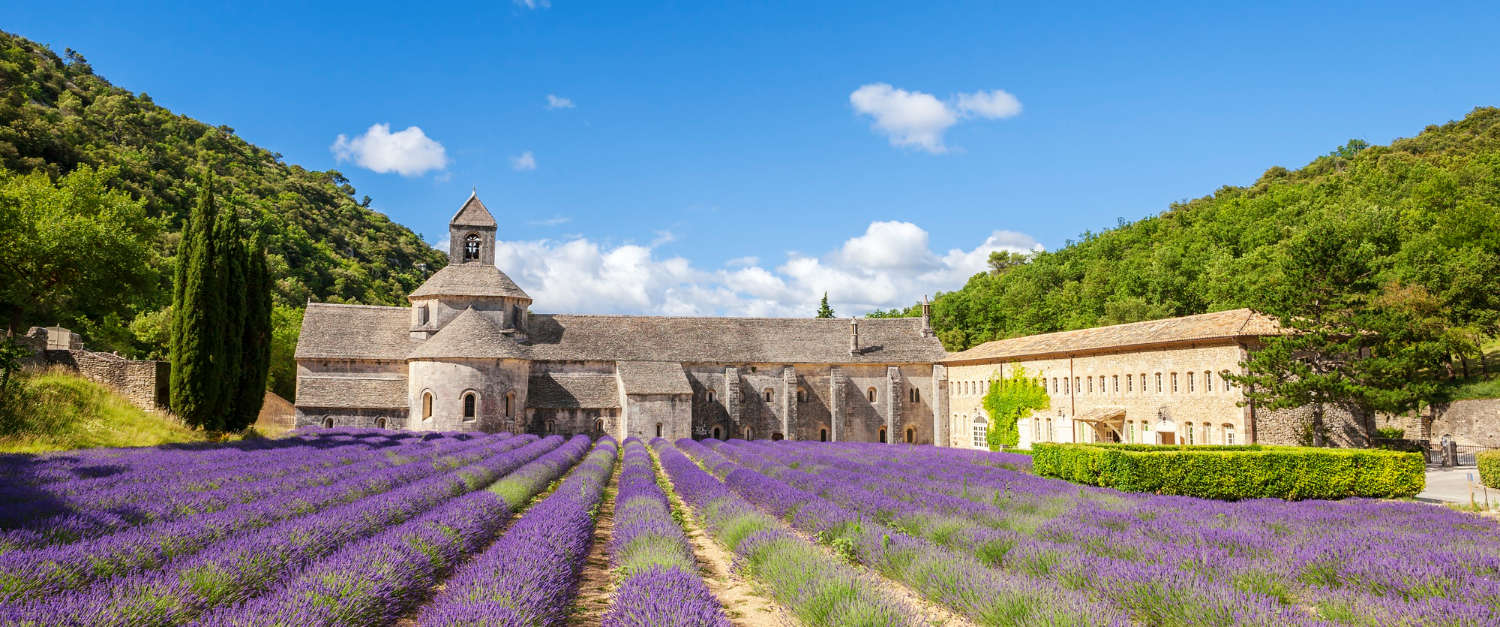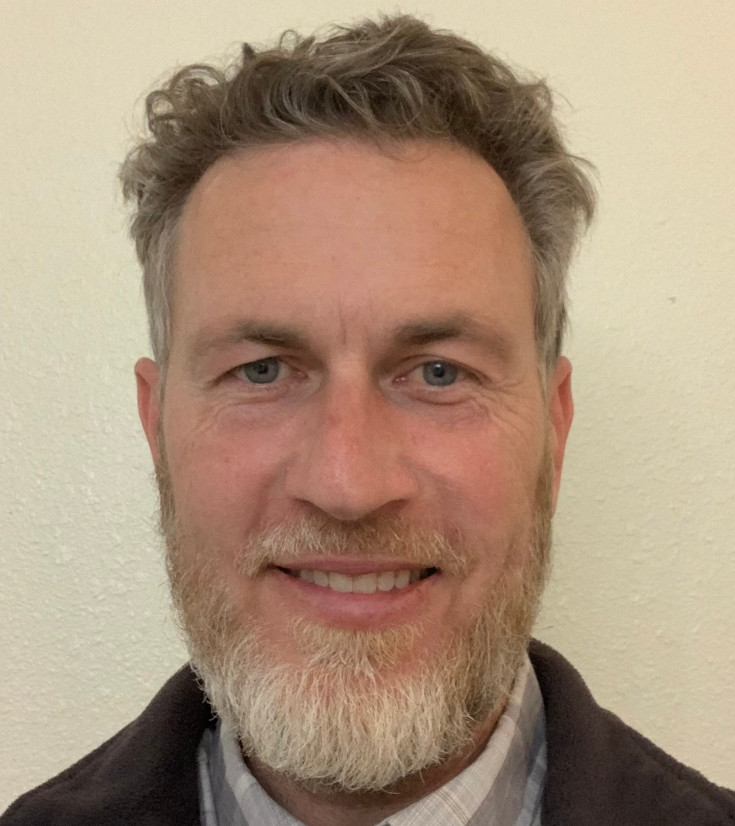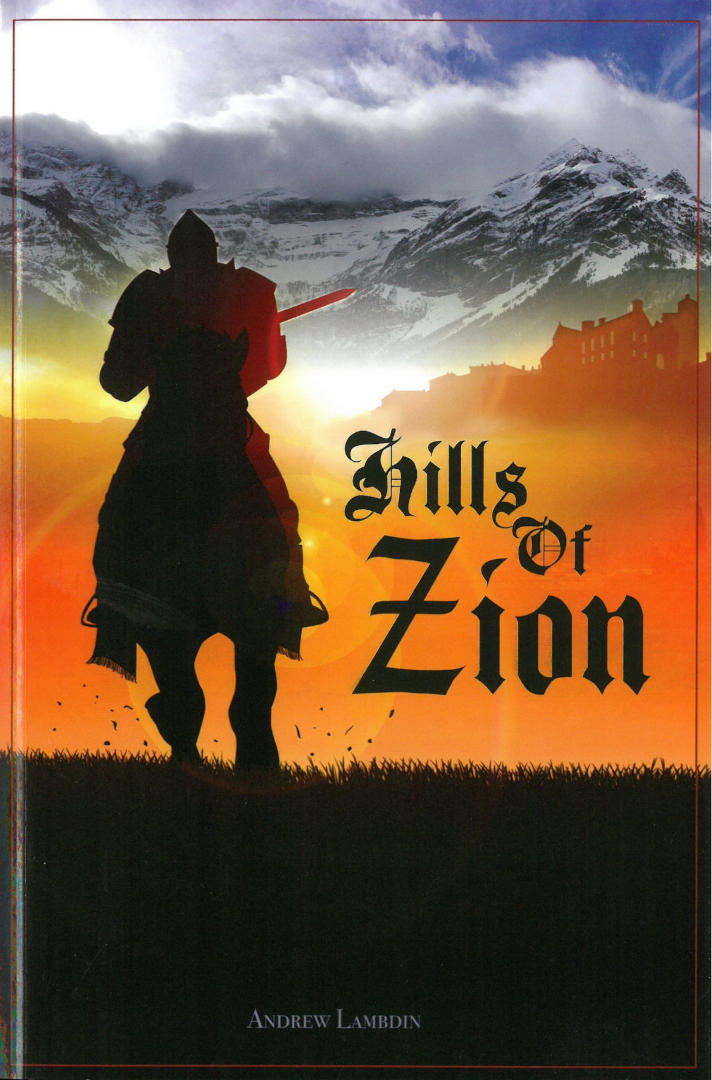Exploring the Albigensian Crusade
- 13 minutes read - 2734 wordsChance meetings can be the best ones. Last summer, my wife and I attended the CHAP (Christian Homeschool Association of Pennsylvania) Convention. While browsing the exhibitor boots, a map of southern France caught my eye. Intrigued, I stepped closer to his publisher’s booth, where Andrew Lambdin was representing his books.
Among the Christian books on display, I noticed two novels by Mr. Lambdin himself: Hills of Zion and Fields of Zion. As a Christian author writing in a similar historical setting, I had to ask him who his books were about. When he told me his books take place in the thirteenth century, during the Albigensian Crusade, I was stunned.
A Christian historical fiction author writing about medieval dissenters? I didn’t know others existed! While my Witnesses of the Light series takes place a few centuries after Mr. Lambdin’s, the parallels between the fifteenth-century Waldensians and thirteenth-century Albigenses are undeniable.
Of course, I picked up both of his books—and I wasn’t disappointed. The Hills of Zion series doesn’t just recount history; it immerses readers in the struggles of those caught in the storm of persecution and faith. Recently, I reached out to Andrew to learn more about his writing journey. I’m honored to feature our conversation here.

An Interview with Andrew Lambdin
Who are some of your favorite fiction authors?
This is a complicated question for me to answer. I tend to be faithful to genres and not authors. I have an eclectic compilation of fiction authors I have enjoyed, most of whom have already passed on. Mark Twain, Leo Tolstoy, and Booth Tarkington would be three prime examples. A favorite contemporary author would be James Michener, not strictly due to his style or ability, but because of his content. Read Poland if you want a novel-style historical narrative of Eastern Europe.
Those are definitely some classic authors. I’ve heard of James Michener, and Poland sounds like the kind of book I would enjoy too.
Is there a particular work of fiction you recommend to everyone?
So many books to consider! I am a middle grade school teacher, so my tastes often reflect that of my students. I want to read what they are interested in. Over the years, I have read dozens of books to my class for “story hour.” One of their favorites is The Boy in the Striped Pajamas by John Boyne. I love how the author brings out the human side of a family of staunch Nazis. In the end, the emotions and experiences that they suffer and the ultimate internal conflict of the horrors surrounding them, leave a lasting impression on the reader. It is a short book that mixes humor and realism, and does not fail to provide a shocking ending that leaves plenty of room for reflection.
This is the third time in the last month someone has recommended The Boy in the Striped Pajamas. I guess that means I’ll need to read it myself.
Now let’s switch to non-fiction. Is there a book you’ve read recently and loved?
I’m not a huge fan of non-fiction, but I occasionally consume a David McCullough tome. I have read The Johnstown Flood. I enjoyed this realistic, chronological depiction of a natural disaster that was not really natural. If you are tired of reading books about overly-saturated events or time periods, I recommend this work.
I’m in total agreement about David McCullough! I think I’ve read all of his published works, my favorite probably being 1776.
I read Hills of Zion this summer and was fascinated by the subject. When did you decide to write a story set during the Albigensian Crusade?
I would have to go back to my mid-twenties to uncover my original inspiration. I had always wanted to write a book. I love history, especially church history in the Middle Ages, so I entertained a story in my mind. After several false starts, I began writing in earnest during the dreary winter of 2007–08. My background was vague at first, but I knew I must eventually settle on a specific time period if I wanted the story to resonate accurately with my audience. The narrative must be surrounded by specific events that could be researched with a suitable number of sources. Both Catholic and Protestant historians have written volumes on the time period between 1209, the beginning of the Crusade; and 1223, when the Council of Toulouse finalized the political aspects of the Albigensian Crusade. The massacre at Bezier and the siege of Carcassonne are events in which the average Christian has little knowledge, sad to say. But this fact only strengthened my resolve to shed light on this horrific period of persecution.
This is definitely a subject in which I have a similar passion. The Middle Ages were certainly dominated by magisterial religion, but there is so much history beyond Rome that deserves to have more of a spotlight. I’m thankful you’ve invested in telling these stories.
Modern church historians often paint Albigenses as violent gnostic heretics. However, in Hills of Zion, you show diverse, sometimes contrasting views of southern European dissenters during the High Middle Ages. How do your characters differ from the modern prevailing view, if at all?
To answer this question, I need to point out that none of the main characters is, technically speaking, an Albigensian. Marie comes the closest, being a native of that area, but she was never involved in the Albigensian movement outright.
That being said, Hills of Zion reflects the often confusing nature of the religious movements of southern France during the High Middle Ages. Modern historians, many of whom have an agenda to prove, want to paint these non-Catholics into a neat little box with homogeneous views and practices. It would be like someone a thousand years from now trying to say that Amish, Mormons, and Baptists were inherently the same. Scholars that research this period need to be careful when sifting through extant materials, mostly written by Catholic inquisitors who definitely had an agenda to prove. To them, all Albigenses were heretics. Individual and group beliefs that varied were immaterial. In fact, it suited their purposes to find the most revolting, repulsive belief system held by any Albigensian and affix that belief onto all Albigensians. Also, very little is remaining of the writings of the Albigensian dissenters. It is true that many were Gnostic, but that was an insignificant minority. The commonly-held belief among Catholics was that Albigensians believed in sexual abstinence and a curious refusal to eat meat and eggs. This stems from the basic Cathar doctrine of separation from the world, which Catholic theologians, either purposely or ignorantly, interpreted to mean that they would not partake of anything that was “of this world.” Remember that the winning side always controls the narrative in every period of history. The Roman Catholic system thoroughly annihilated the Albigensian movement, and therefore claimed the right of the victor by expunging all original records written by the Albigensians, partially to justify why they decided to murder tens of thousands of innocent people. Most of the characters in Hills of Zion come from regions beyond Provence and Languedoc, but their convictions and yearnings of the heart would mirror the basic premise of the Albigensian movement. The overall message is one of living at peace with mankind and showing love and compassion to one’s neighbor.
Thank you for clarifying that, as I believe it makes your storytelling unique. I’m convinced that, in fiction, the most interesting way to show readers a particular people group is from an outsider’s perspective.
As for your portrayal of these medieval religious movements, you stated that so well. A potential pitfall for anyone interested in these groups is to read one account and assume they were all the same.
Are there any interesting historical details you found while researching that made it into Hills of Zion?
One obscure gem was discovered when researching Medieval customs surrounding Christmas— “The Lord of Misrule.” Basically, it was a parody of their local noble where a villager was elected to pretend to be the ruler for a day. They could do virtually anything, so long as no one was hurt. Mixed with alcohol and foolishness, the act often got well out-of-hand.
So true. Each realm and village had their own odd rituals, many of which would surprise the modern man.
I loved the diverse characters in Hills of Zion and how their stories converged as the narrative progressed. Personally, I enjoyed Cardinal Michaud the most. Do you have a favorite?
This is perhaps the most difficult question to answer. In a sense, I see a part of me in most of my characters. But I do have real life people that I have drawn from to create my characters. Jean’s combination of intellectual acuity and wanderlust appeal to me the most. Perci’s childish penchant for rebellion and consistent desire to prove that he is something, creates the perfect flaw for a protagonist. As a teenager, I was much the same. But I have a soft spot for Marie, who is patterned after one of my former students that is dear to my heart. Her quiet intelligence, sharpness of mind, and childlike faith in God and those whom she loves, provides a certain stability to a narrative that is full of violence, hatred, and turbulence.
That is so interesting to discover the inspirations for some of your characters. And I’ve felt the same way when readers ask which of my own characters is my favorite or most like me. My typical answer is: “None of them are me, but all have some of me.”
What are some Biblical themes in Hills of Zion?
I sprinkled Biblical themes throughout the story. My primary purpose was to portray a path to redemption. There are several “Christ-types” personified in the narrative. Beulan offers himself impetuously in place of a condemned stranger. Jean rescues Cardinal Michaud and Antonio from certain death, at his own peril. Perci finally surrenders his will and risks everything to save Marie. And as the historical record suggests, Viscount Raimond Trenceval offers himself in exchange for his people, who languished behind Carcassonne’s walls.
I thoroughly appreciated your attention to the real, day-to-day Christian walk. It wasn’t simply talked about or alluded to, but shown in the characters’ actions and choices.
One thing we both have in common is being a husband and father, while also being an author. How does your family affect your perspective as a storyteller?
I often think of the stakes involved when you have others that count on you for the basic necessities of life. When Beulan meets Marie, he adopts her as his own. She has special needs, as well as basic physical needs, like food, clothing, and a place to sleep at night. She also needs someone strong and steady to comfort her when the past and present weigh upon her young mind. When Beulan reaches the “crossroads” toward the end of the first book, he suffers mentally with the burden of making the right decision that will protect and preserve those under his care. As in life, he makes a snap decision with the best intentions, only to have matters go terribly wrong. That happens as a father. I have experienced it myself. My relationship with my wife helped me delve into Jean’s brain a little and develop his relationship with Marjorie. He is somewhat footloose and a wandering soul. Even though bonded to his wife, he feels bonded to the mysterious calling of the Spirit and to his scattered flock of Believers.
I just want to say that I can’t get enough of an author’s insights into specific character nuances. Hearing how deliberate these relationships were make the story even more real.
What writing advice would you give to other authors, whether they’re just starting out or have been writing for years?
I have, unfortunately, learned many lessons the hard way. First, if you have a book in your head, start writing now, while you have room to grow. Second, write every day, even if it’s only a paragraph. Keep your thoughts fresh. Third, write/type freely. Don’t get bogged down with writing perfectly when you are only working on a rough draft. Perfect syntax, narrative flow, and dialogue will come in the next phase. I am tempted often to place all my punctuation marks as I am developing the story. I believe that only hinders the natural flow. And lastly, avoid echo chambers. If you want an honest assessment of your skills, or lack thereof, ask people to be critical, not nice.
I have nothing to add, and I agree entirely! Your second point is the one I battle the most—wanting everything to be perfect on the first go, when it doesn’t need to be until later.
Other than the Hills of Zion series, do you have any other story ideas?
I always have ideas floating around my head. Hopefully, there is another book or two awaiting, but we’ll see. This series is why I write in the first place. It was my first love in the literary sense. I will likely branch into one of two possibilities. As a middle-grade teacher, I would like to write a story specifically for that age group. I envision a scenario where two young teenagers, a boy and a girl, get stranded on an island somehow. They are both spoiled brats. He is a jock and she is fat and repulsive. That story could develop in many possible directions. Also, I have thought about writing short prequels of individuals from the Hills of Zion series. Cardinal Michaud, Jean, the Black Knight, Marie, and Beulan all have myriad possibilities for development. It would be similar in style to your short story, The Outcast of Chivasso, which I thoroughly enjoyed.
Those sound like some interesting premises! And I’m glad you enjoyed The Outcast of Chivasso!
To finish our discussion, what are some takeaways you hope readers get from Hills of Zion and Fields of Zion?
The main takeaway that I would want readers to have would be that we are all a redemptive project. Despite our flaws, God has a path for each of us to follow. It starts at the Cross and ends, hopefully, in complete sanctification before we die. He can use blind orphan girls like Marie, flawed ministers like Jean, conflicted soldiers like Perci and Antonio, and elitists like Michaud. I hope the message of tolerance also bleeds through. Everyone thinks that they are in the right. Nobody deliberately sets out to be a bad actor or wants to believe in something that is wrong. So we need to exercise patience and charity as Christians when dealing with those whose worldviews are much different than our own, or else we are no better than the Inquisitors of the Middle Ages.
That is a great lesson for any of us, regardless of the era in which we live. Thank you, Mr. Lambdin, for taking the time to be interviewed. I’ve been enriched by the discussion, and I look forward to reading more of what you write.
You can find about Andrew Lambdin on his blog, Hills of Zion. His books are available through Gospel Publishers USA, where you can find both Hills of Zion and its sequel, Fields of Zion. If you’re interested in using this as an educational supplement, Mr. Lambdin has also developed a study guide for Hills of Zion.
About Andrew Lambdin

Andrew Lambdin currently resides in Scotia, Nebraska, and teaches middle grades at Springdale Christian School. He has been married to his wife, Diane, for 24 years and has five children. His interests include church history, medieval history, canoeing, camping, and writing. He pursued a history degree from Pensacola Christian College from 1992–1996.
Author Andrew Lambdin hopes to increase understanding of this pivotal period in church history, long before the Protestant Reformation, which influenced later groups in the struggle against Rome.
About Hills of Zion
Pope Innocent III attempts to destroy the Albigensian movement. Two feuding brothers strive for glory and the preservation of their consciences. An Irish monk searches for God’s people. A Catholic cardinal, struggling with his church’s brutal tactics, encounters a Waldensian minister. As violence is unleashed on a horrendous scale, these people must find God’s will amidst turmoil and spiritual confusion. Witness how God leads during dire circumstances.
